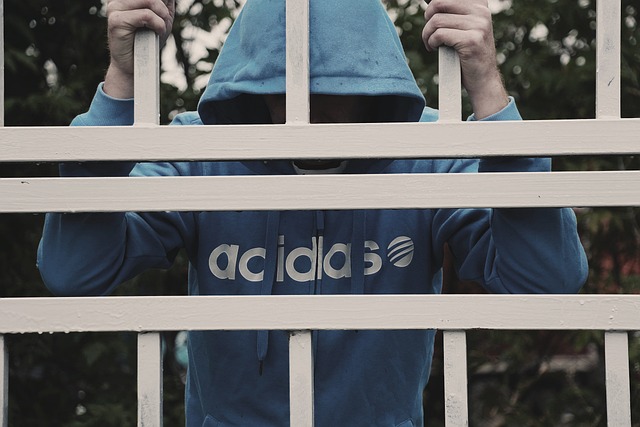High-risk reoffenders with histories of DUI or social hosting face complex challenges rooted in addiction, mental health, or lacking support systems. Social hosting, often overlooked, significantly contributes to the normalization of risky behavior and DUI liability. To break the cycle of reoffending, a multi-faceted approach is required, focusing on intervention, rehabilitation, community support, and responsible hosting practices. This strategy, integrating technology, collaboration, and education, aims to reduce DUI recidivism by addressing underlying issues in high-risk social environments.
In the intricate web of criminal justice, understanding high-risk reoffenders—particularly those entangled in drunk driving recidivism—is a complex yet vital task. This article delves into the challenge posed by social hosting, a significant factor contributing to DUI recidivism, where parties facilitate intoxicated individuals’ access to alcohol. We explore alternatives to criminalizing social hosting and present comprehensive strategies to disrupt the cycle of reoffending. By addressing these issues, we aim to promote safer communities and reduce high-risk individuals’ return to crime.
- Understanding High-Risk Reoffenders: A Complex Issue
- The Role of Social Hosting in DUI Recidivism
- Exploring Alternatives to Criminalize Social Hosting
- Strategies for Breaking the Cycle of Reoffending: A Comprehensive Approach
Understanding High-Risk Reoffenders: A Complex Issue

High-risk reoffenders, particularly those with a history of DUI (driving under the influence) or involved in social hosting, pose a complex issue. These individuals often find themselves caught in a cycle of repeat offenses due to underlying factors such as addiction, mental health issues, or lack of access to adequate support systems. The challenge lies in recognizing that their reoffending isn’t merely a choice but may be a result of systemic failures and social influences.
Social hosting, while often an indirect factor, plays a significant role, especially in DUI cases. It refers to the act of providing alcohol to individuals who might then drive under its influence. This behavior not only carries legal consequences but also contributes to a culture that normalizes risky behavior. Addressing high-risk reoffending requires a multi-faceted approach that goes beyond punishment, focusing on intervention, rehabilitation, and community support to break the cycle and prevent future offenses.
The Role of Social Hosting in DUI Recidivism

In the context of DUI recidivism, social hosting plays a significant role in perpetuating the cycle of reoffending. While many focus on punishing drivers for impaired driving, overlooking the role of those who facilitate such behavior can be detrimental. Social hosts, whether intentional or not, contribute to DUI liability by providing access to alcohol for individuals who may have otherwise abstained. This phenomenon is especially pronounced in social settings where peer pressure and a desire to fit in can lead to increased alcohol consumption, potentially resulting in impaired driving.
The legal implications of social hosting are substantial. In many jurisdictions, hosts can be held liable for the actions of their guests, especially if they knowingly provide alcohol to an individual who is already intoxicated or at risk of driving while impaired. This concept underscores the importance of accountability among social hosts and raises awareness about the potential consequences of seemingly casual behavior. By understanding their role in DUI recidivism, individuals can make more responsible decisions, ultimately contributing to safer communities.
Exploring Alternatives to Criminalize Social Hosting

In recent years, there has been a growing debate around the concept of “social hosting” in relation to drunk driving (DUI) incidents. Traditional approaches often criminalize the host of parties or gatherings where alcohol consumption occurs, but this strategy has its limitations and potential for unfair targeting. Instead of focusing solely on individuals who directly provide alcohol, some legal experts propose exploring alternatives that hold social hosts accountable without imposing strict criminal penalties.
The idea is to recognize that hosting a gathering where alcohol is consumed can contribute to DUI-related risks. By implementing laws that establish clear guidelines and standards for responsible hosting, such as promoting designated drivers or responsible drinking practices, communities might effectively reduce these dangers. This approach aims to foster a culture of accountability among hosts, ensuring they take proactive measures to prevent impaired driving, thereby breaking the cycle of reoffending.
Strategies for Breaking the Cycle of Reoffending: A Comprehensive Approach

Breaking the cycle of reoffending among high-risk individuals, such as repeat DUI offenders, requires a multifaceted strategy. One effective approach is implementing comprehensive community-based programs that focus on rehabilitation and social integration. These programs often include education, job training, mental health support, and mentorship to address underlying issues contributing to criminal behavior. For instance, social hosting interventions can be pivotal in reducing DUI recidivism by targeting high-risk social environments and promoting responsible alcohol consumption.
Moreover, integrating technology into these initiatives enables better monitoring and support. GPS tracking devices and mobile apps can facilitate regular check-ins with probation officers while providing access to resources like online counseling sessions. By combining traditional counseling methods with innovative digital solutions, we can create a supportive network that disrupts the cycle of reoffending. Additionally, fostering collaboration between law enforcement, community organizations, and healthcare providers ensures a cohesive effort to address high-risk reoffenders’ complex needs, ultimately leading to successful outcomes.
In addressing high-risk reoffenders, particularly in the context of social hosting and DUI liability, it’s evident that a comprehensive approach is crucial. By understanding the complex issue of repeat offenders and exploring alternative strategies, such as innovative solutions to criminalize social hosting, we can break the cycle of reoffending. This multifaceted approach, combining education, intervention, and supportive services, holds promise for reducing recidivism and fostering safer communities.






